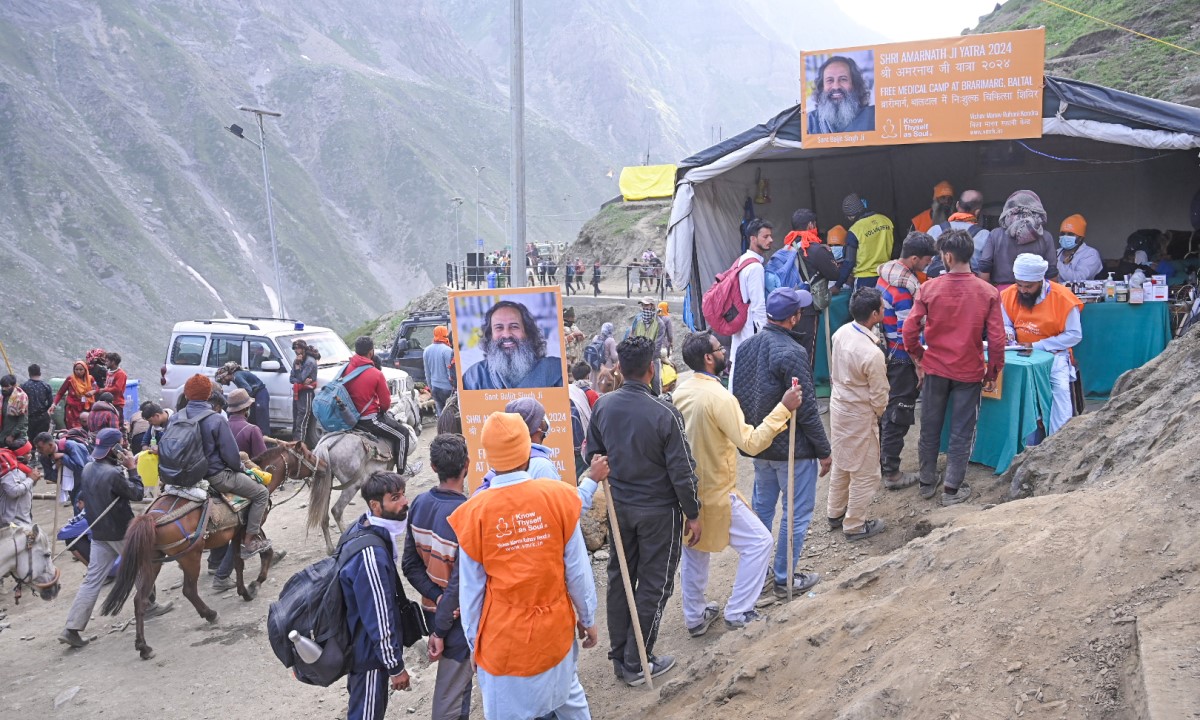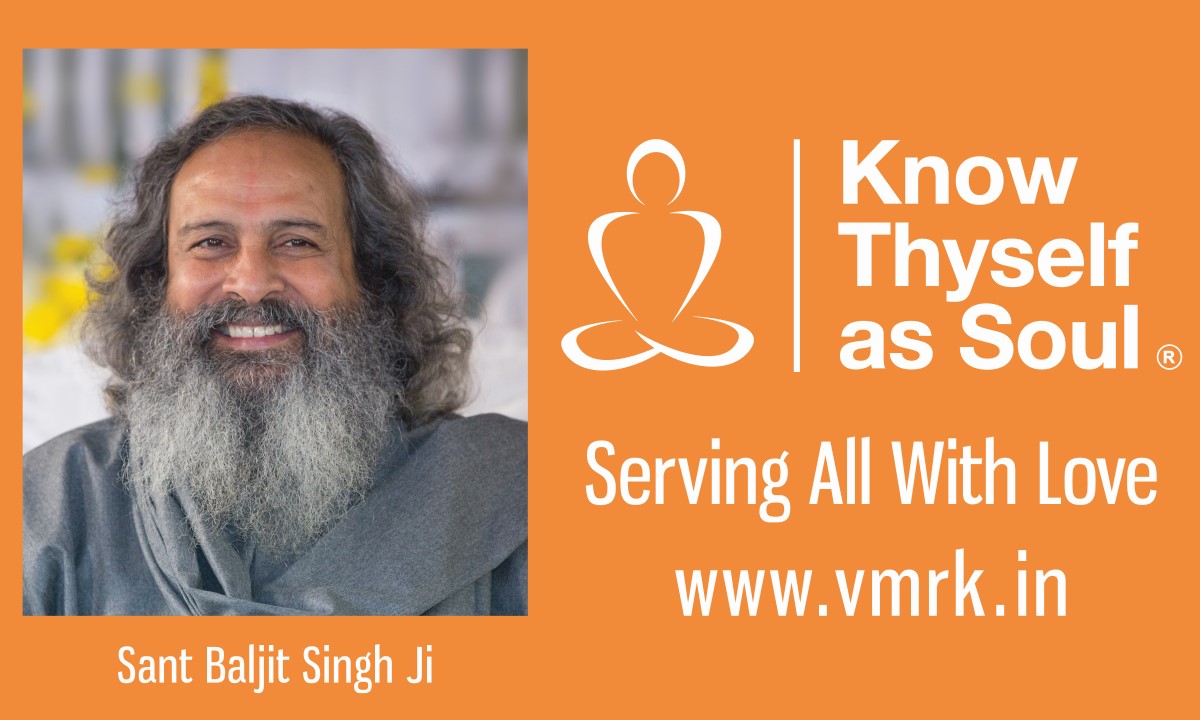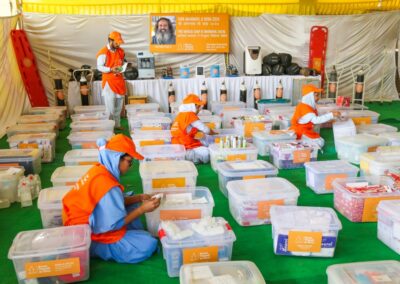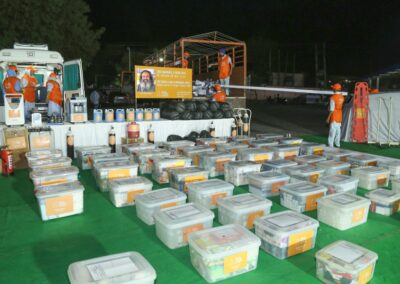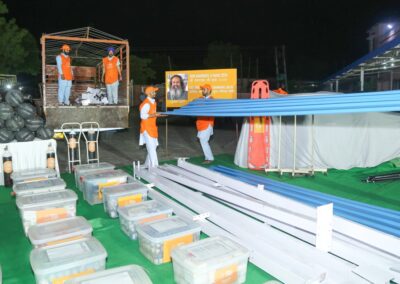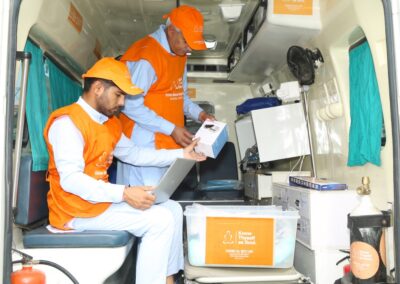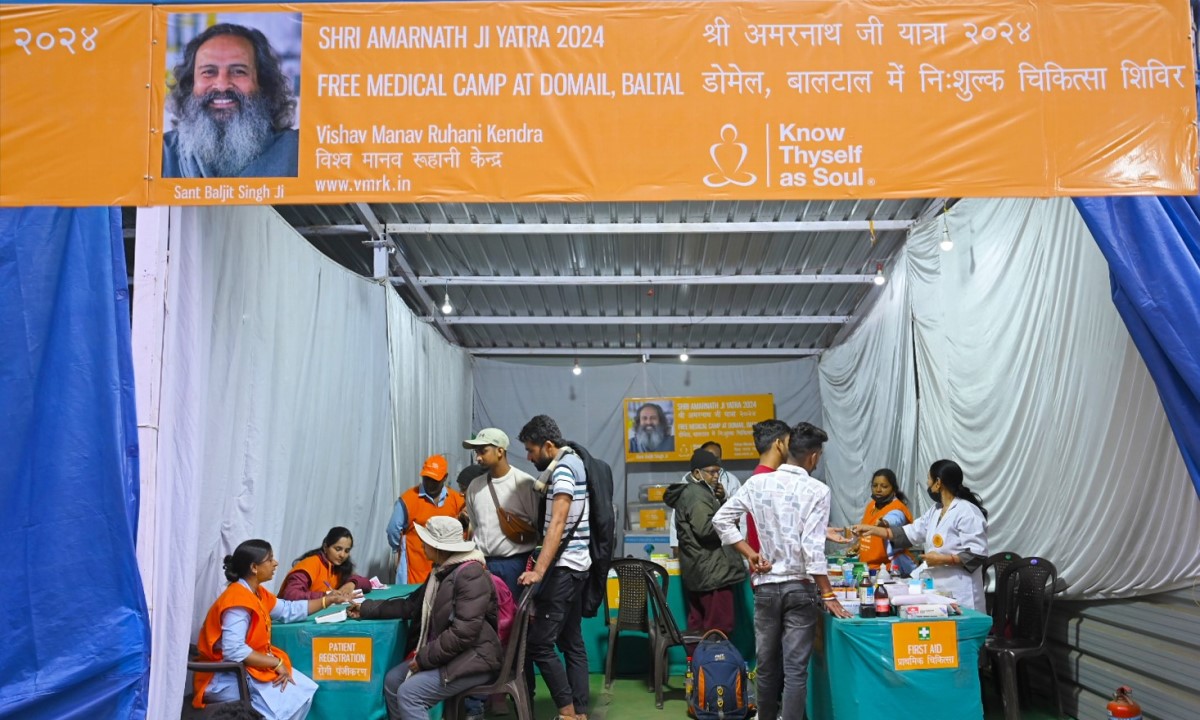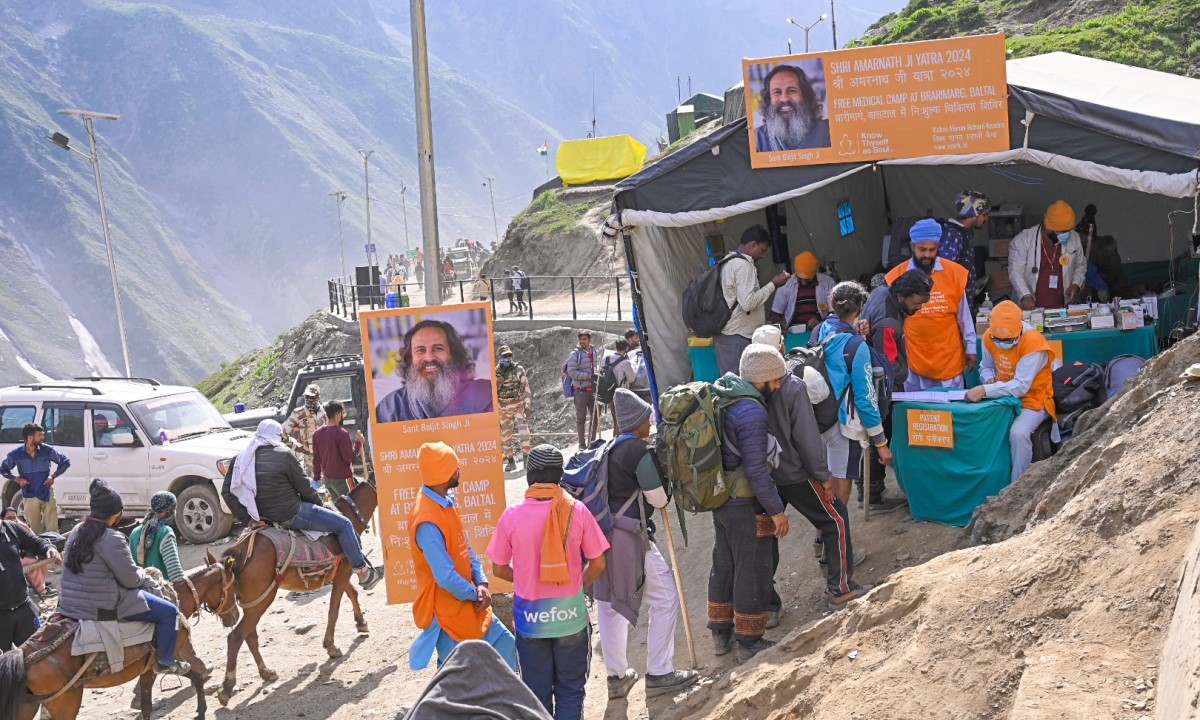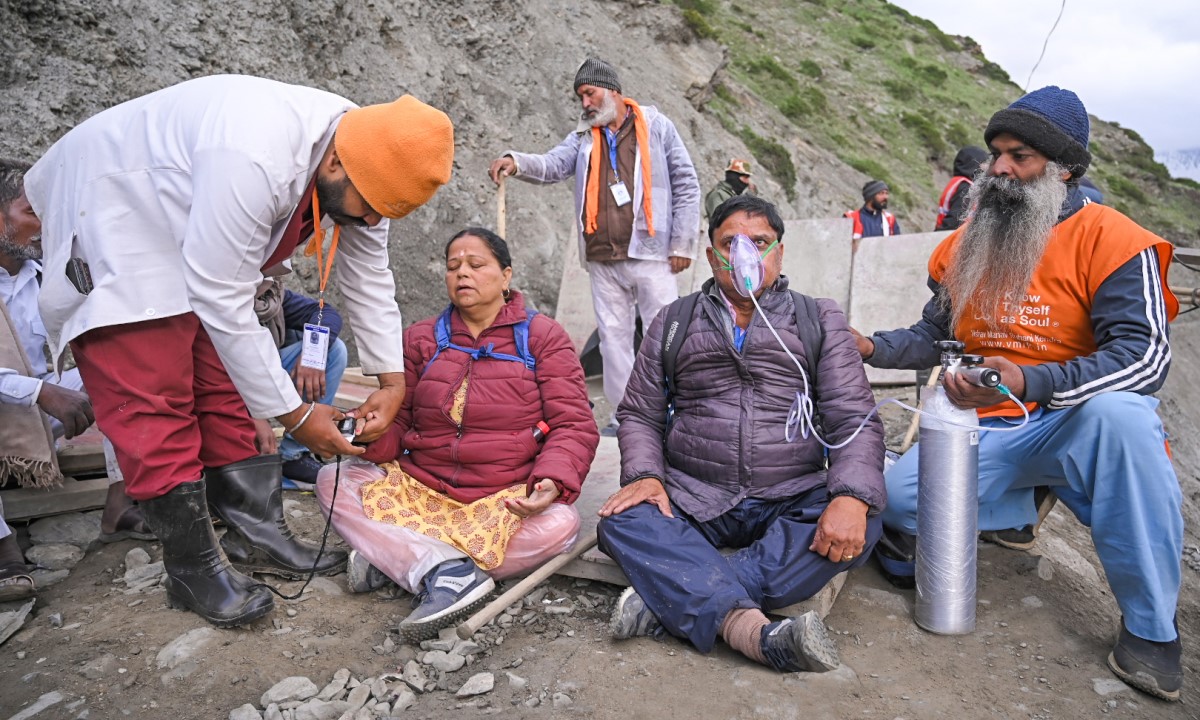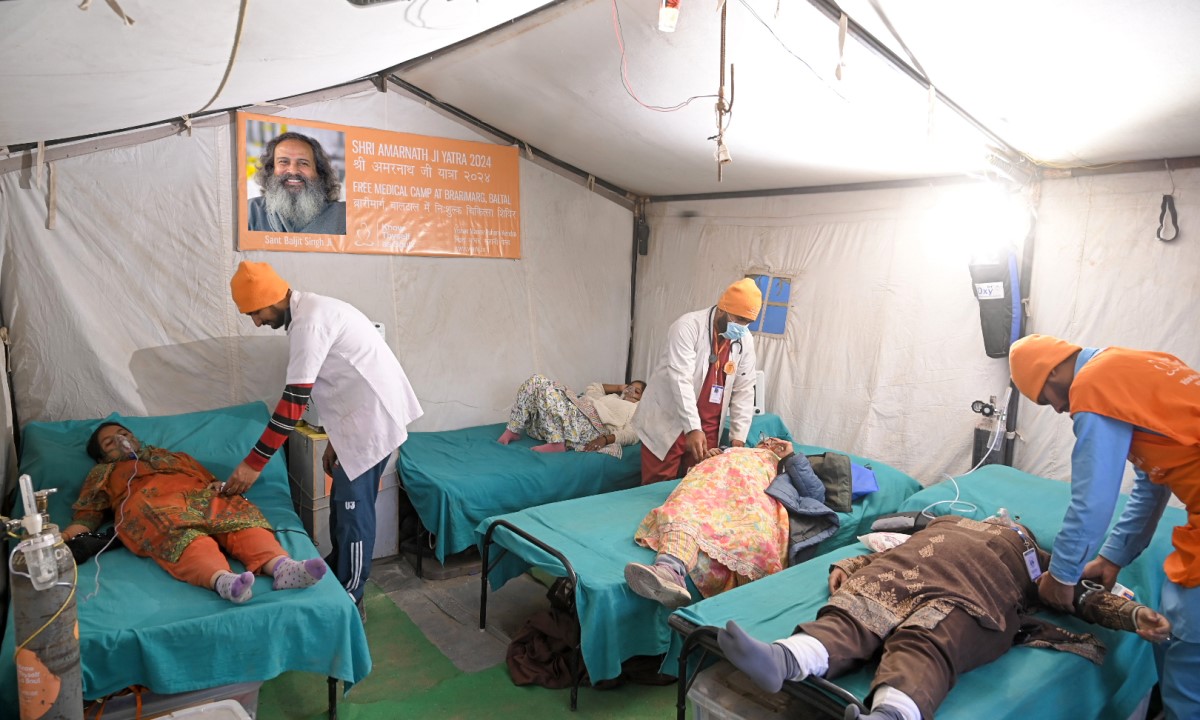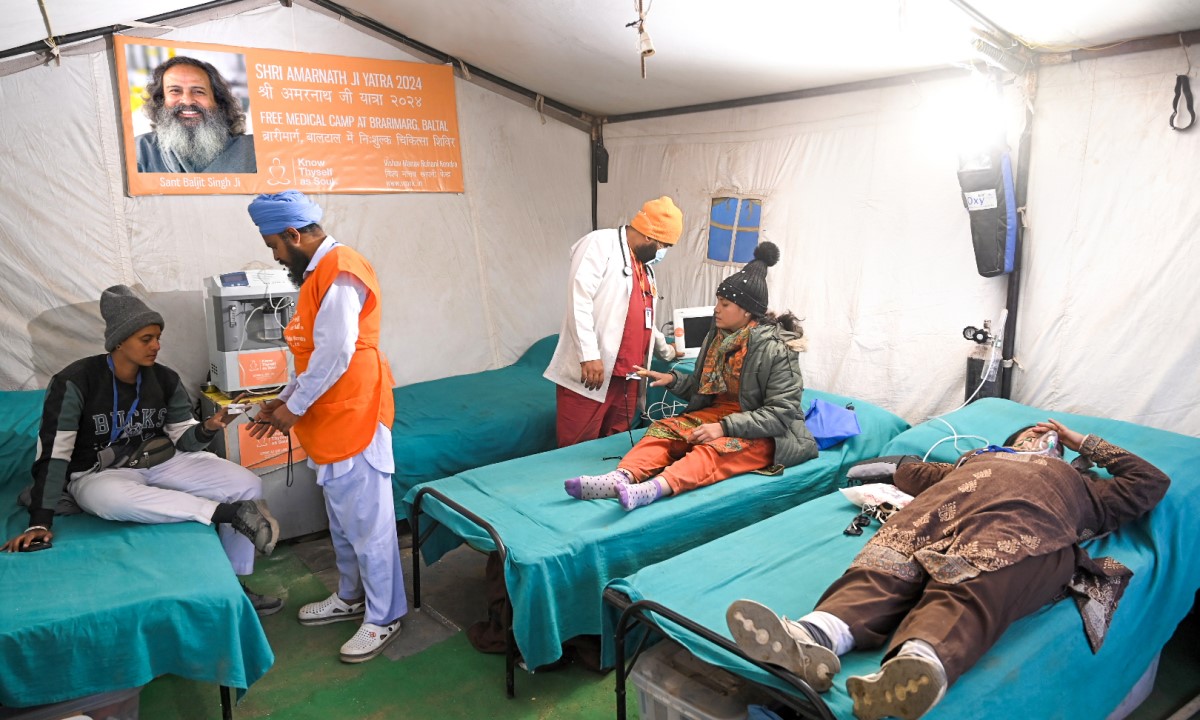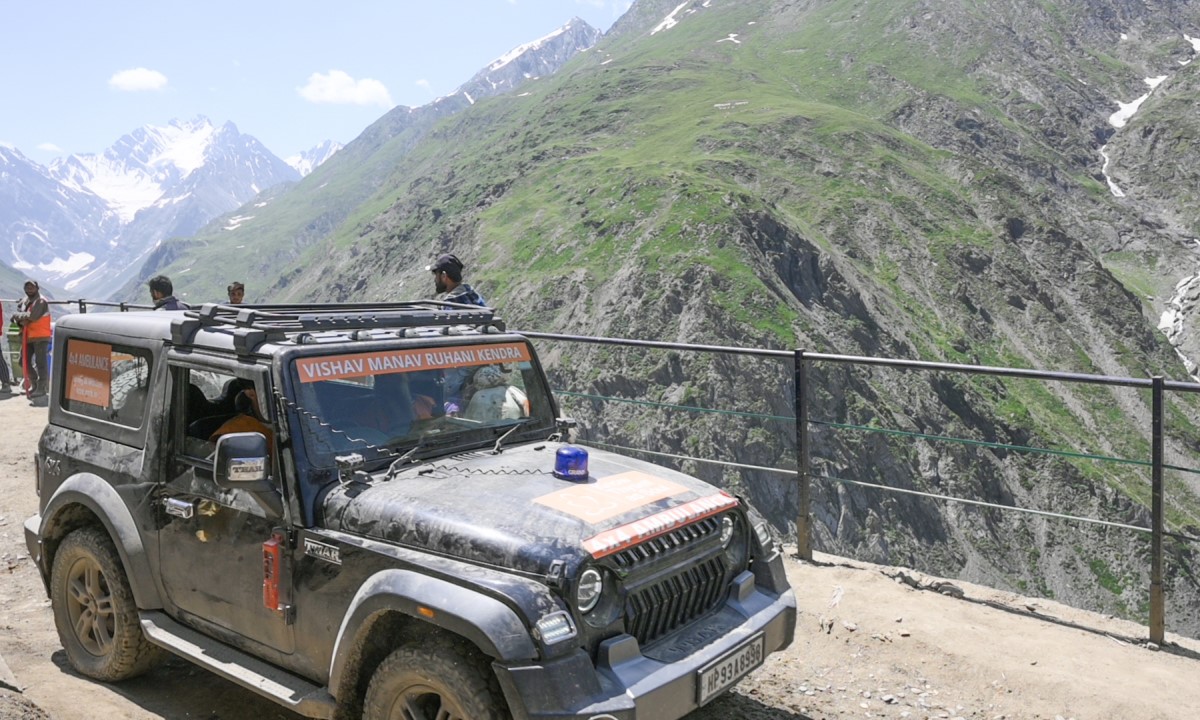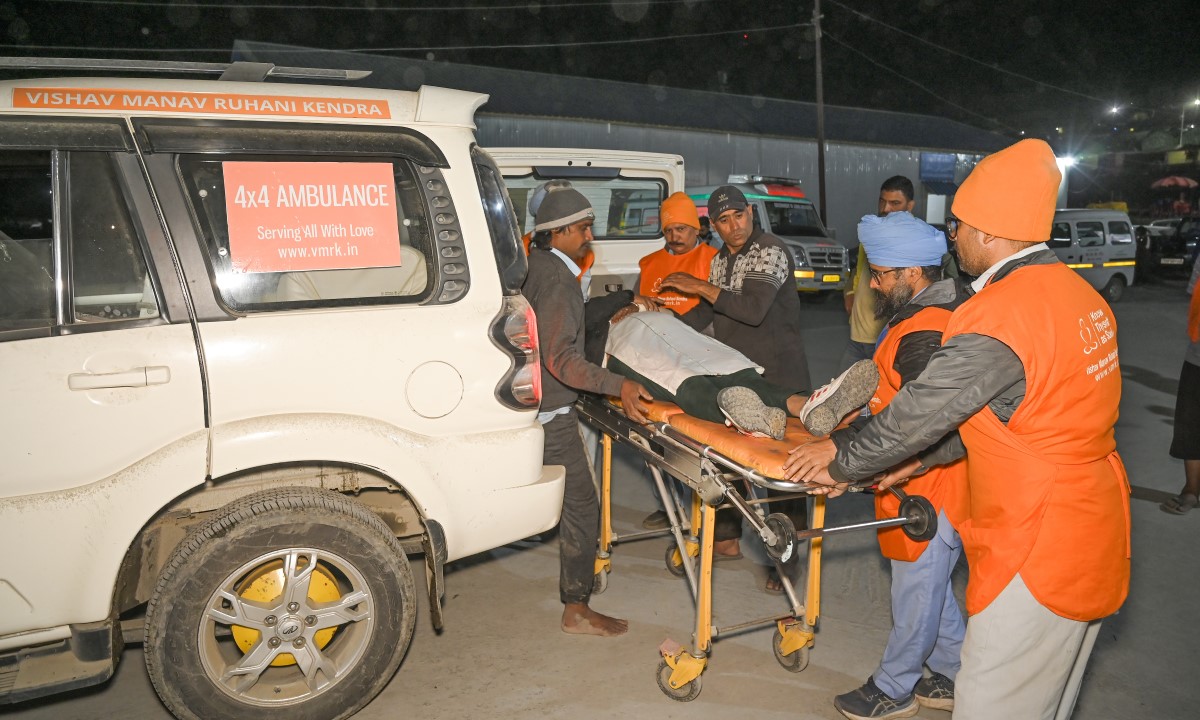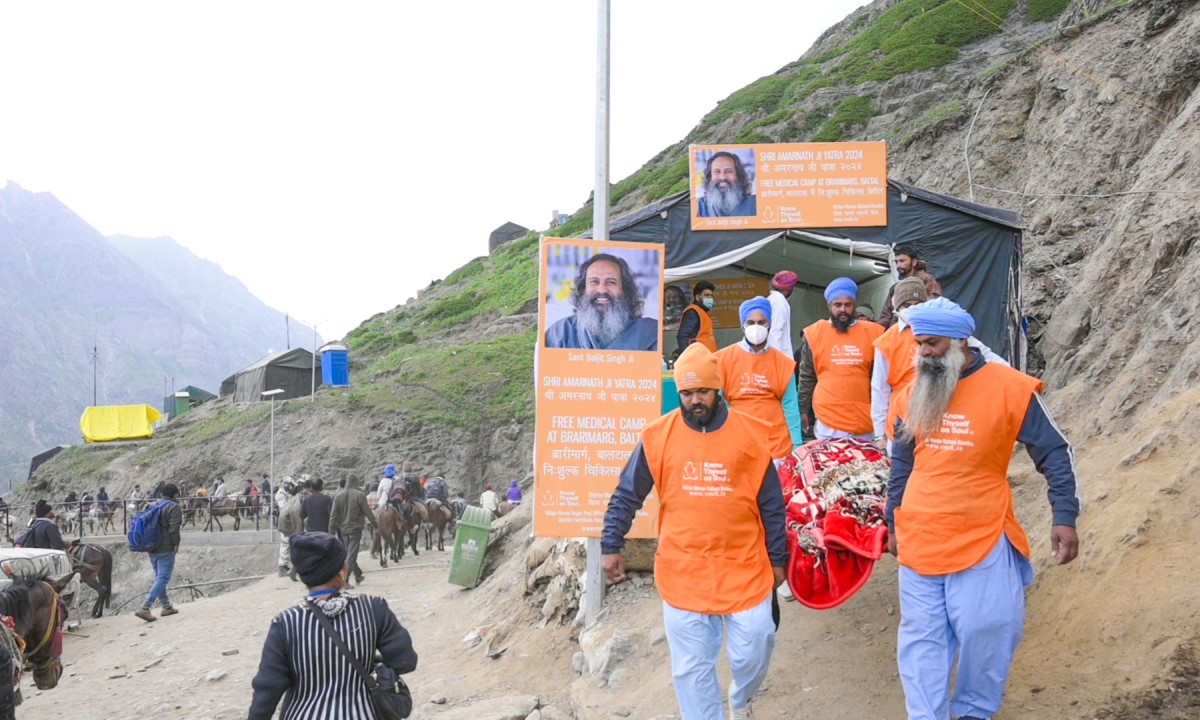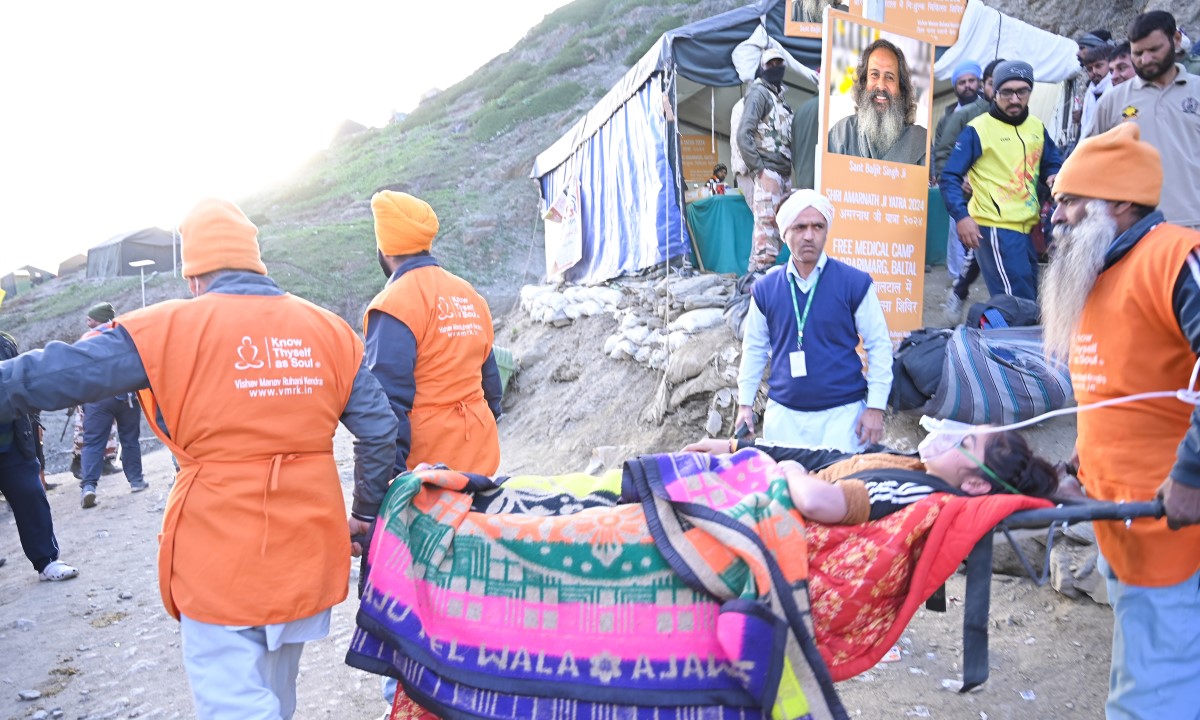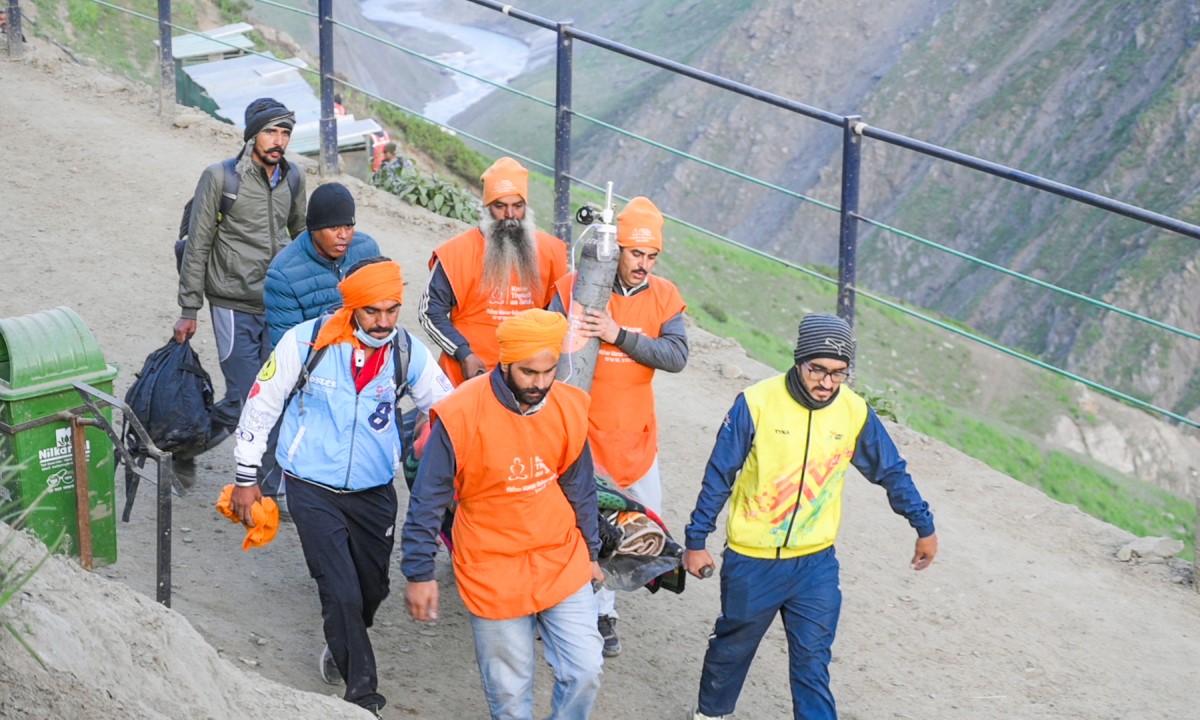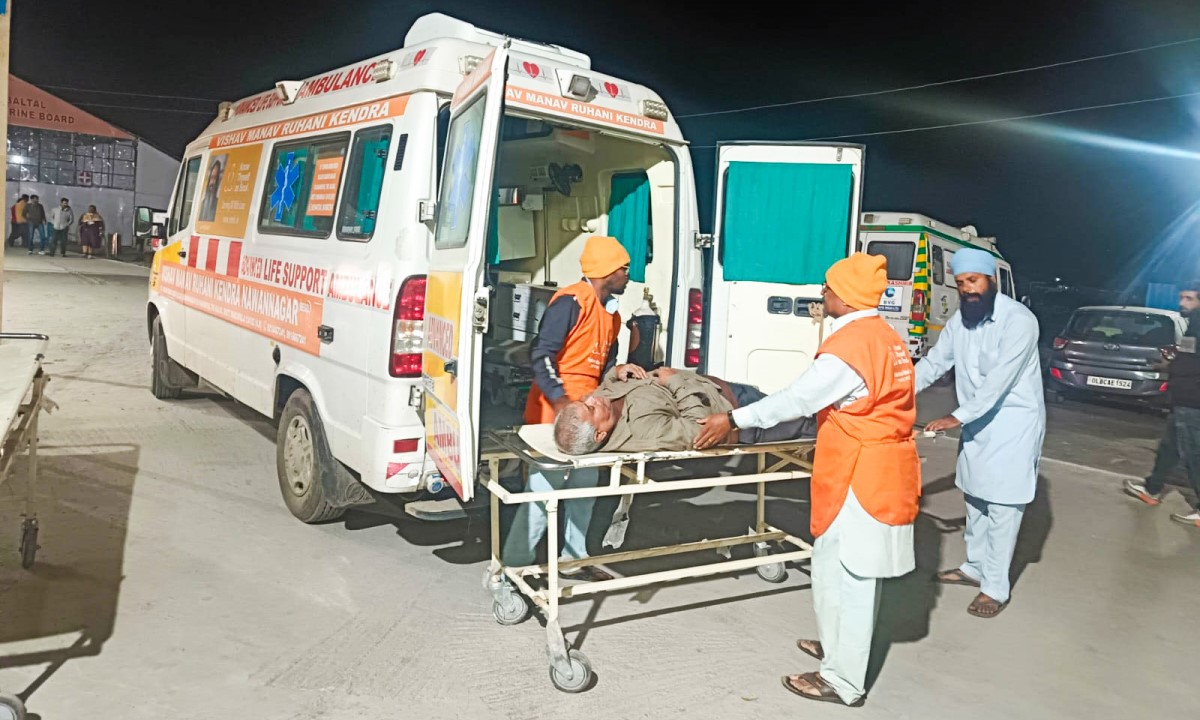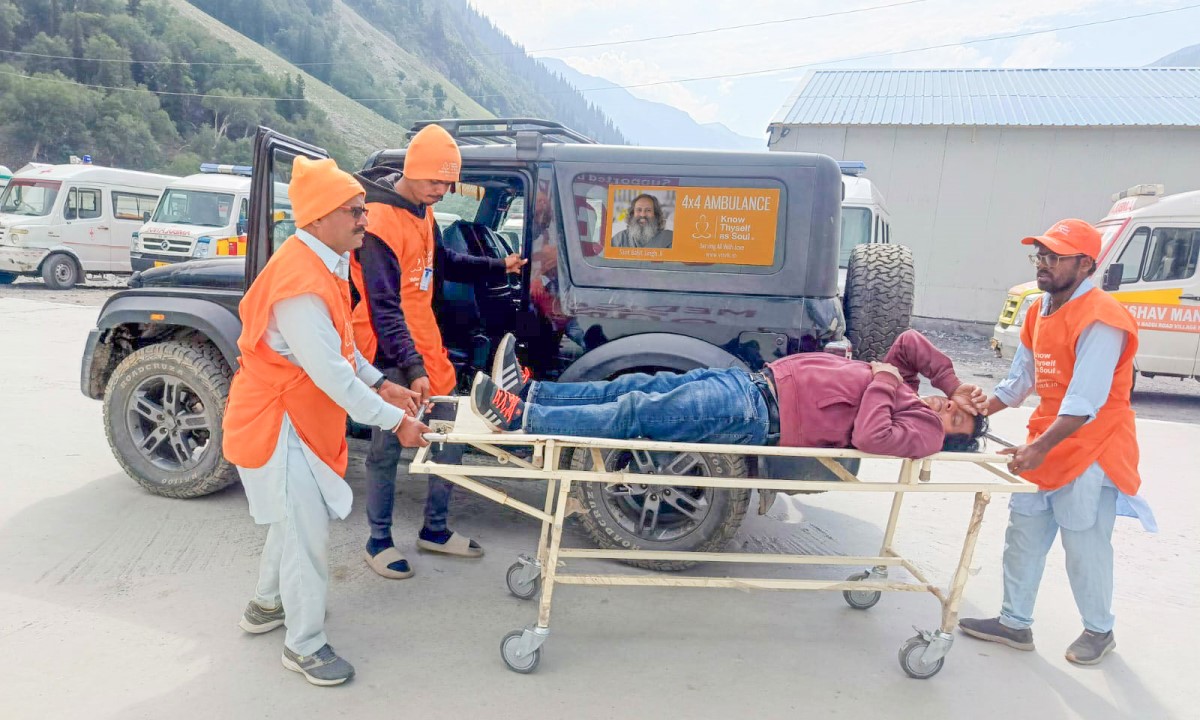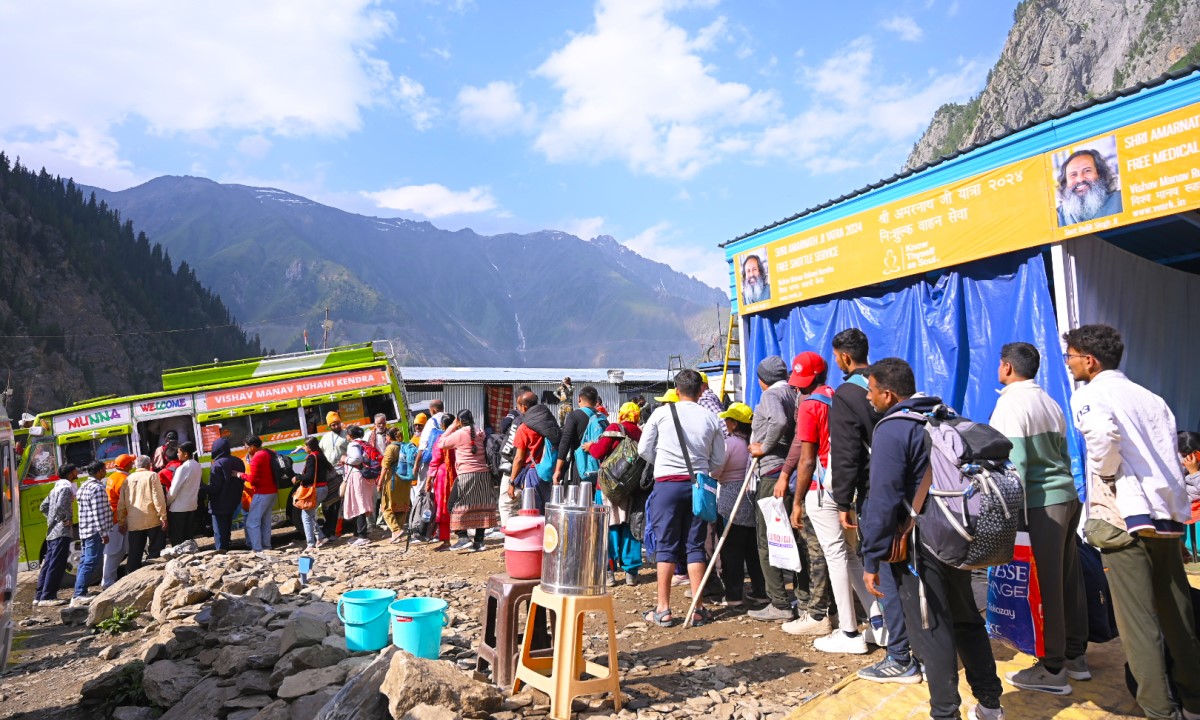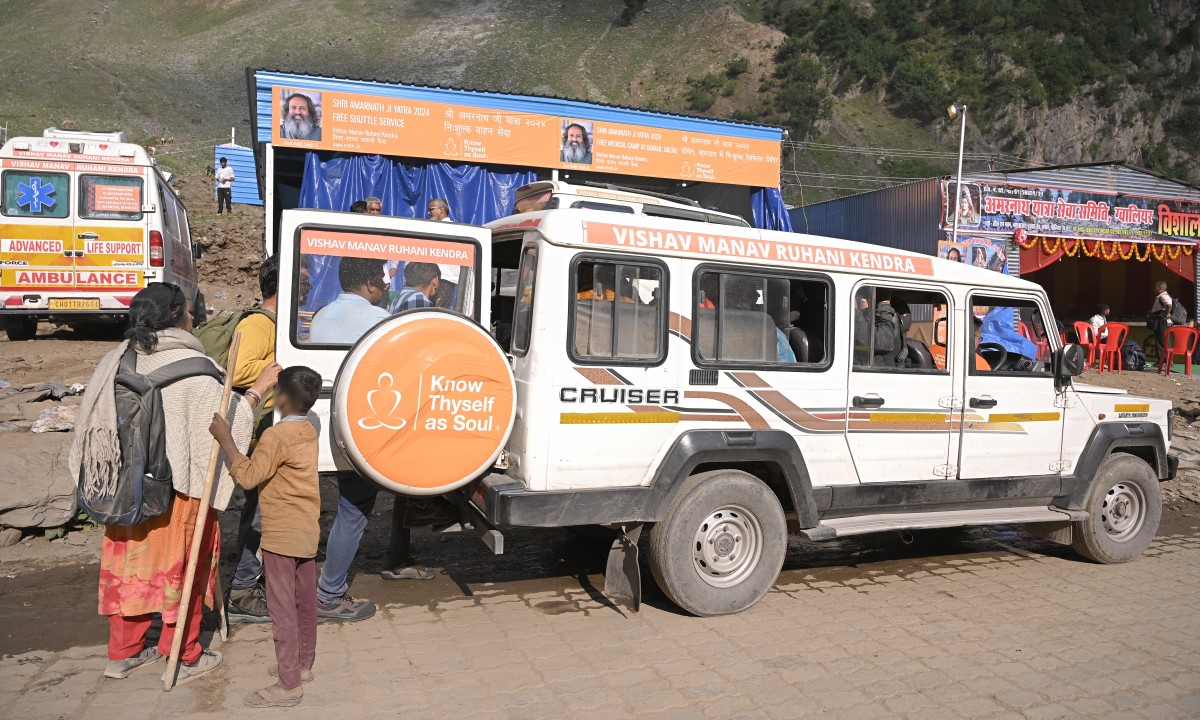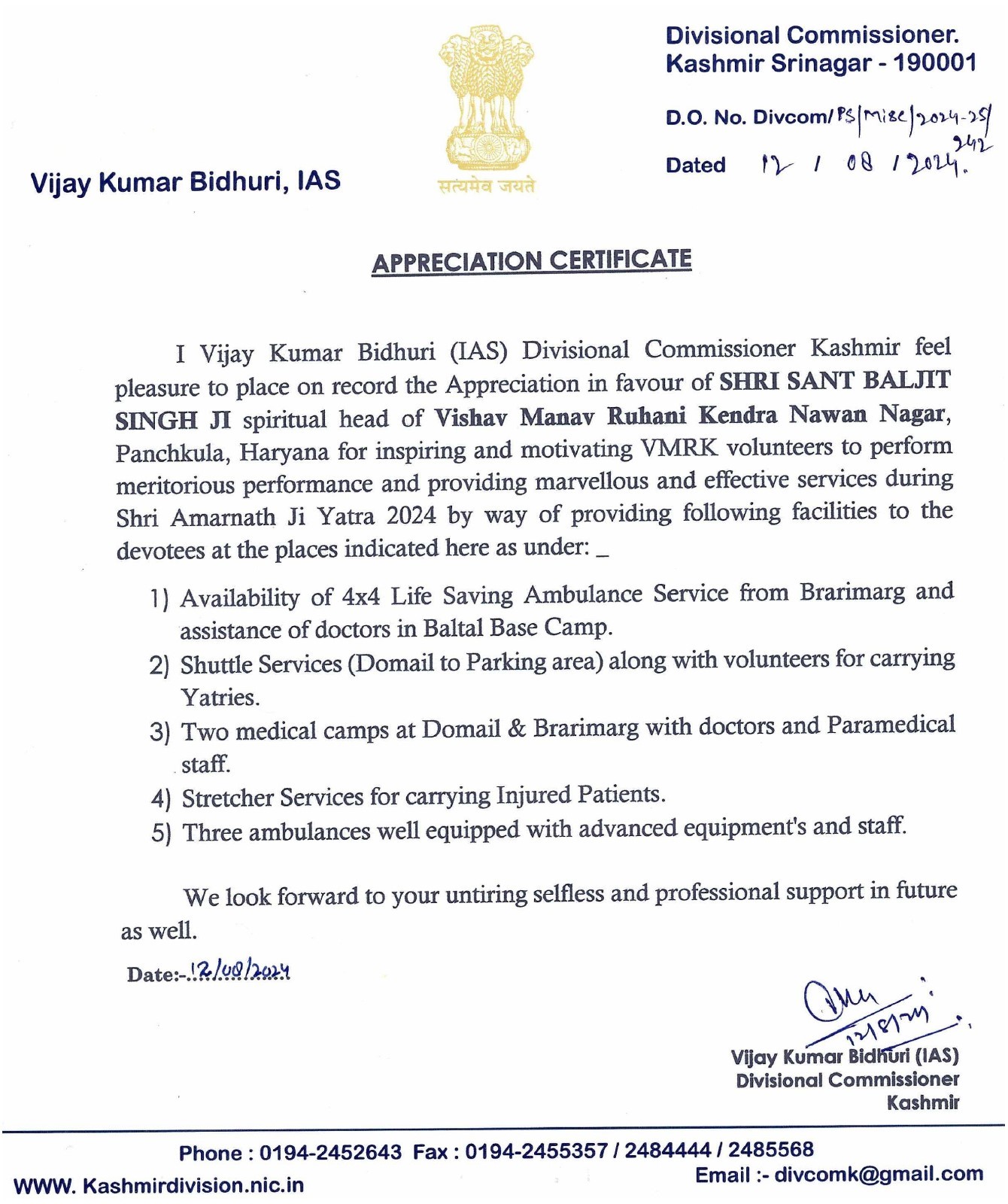Serving pilgrims at Shri Amarnath Ji Yatra 2024
Each year, hundreds of thousands of pilgrims undertake the yatra (pilgrimage) to the Amarnath Holy Cave, located in the Indian state of Jammu and Kashmir. It is believed that in this cave, Lord Shiva narrated the secrets of immortality and the creation of the Universe to Goddess Parvati.
Situated at an altitude of 3,888 meters, the Amarnath Holy Cave is accessible through the Pahalgam and Baltal routes. The Baltal route is a 14-kilometer trek, while the Pahalgam route is 32 kilometers. Although the Baltal route has more difficult terrain and narrower paths, pilgrims often prefer this route due to its shorter distance.
Since 2022, Vishav Manav Ruhani Kendra (VMRK) has been serving pilgrims undertaking the Shri Amarnath Ji Yatra. The services offered are described in these blog posts: Serving at the Shri Amarnath Ji Yatra 2022 and Serving pilgrims at Shri Amarnath Ji Yatra 2023.
For the 2024 Shri Amarnath Ji Yatra scheduled from June 29, the local administration again permitted VMRK to provide pilgrimage services along the Baltal route. VMRK’s medical services included ambulance and stretcher services, and VMRK’s shuttle service from 2023 was provided again.
Preparing to serve at Shri Amarnath Ji Yatra 2024
Assigned to set up medical camps in Domail and Brarimarg, VMRK customized the planning for each site. Domail is located in a highland area 11.25 kilometers from the Amarnath Holy Cave and serves as the starting point of elevation for the trek. There, VMRK prepared for a larger medical camp measuring 30 x 30 feet and accordingly, acquired metal sheets, pillars, and beams for the camp.
At Brarimarg, 6.25 kilometers from the Amarnath Holy Cave, the designated location for the medical camp was on the mountainside, right beside the pilgrims’ path. Due to the limited space, VMRK made plans for a smaller medical camp using a canvas tent measuring 14×21 feet.
Given the duration of the yatra, VMRK scheduled batches of volunteers to serve in shifts of 10–15 days with overlap to ensure service continuity. Before finishing one shift, VMRK would dispatch the next batch of volunteers to arrive early and settle in before taking over.
A team of VMRK volunteers procured medical supplies for both camps and set about packing these into 70 boxes, each labeled with its contents. On June 22, a truck loaded with all the materials and the first batch of 7 volunteers departed the VMRK center in Nawan Nagar.
Meanwhile, volunteers at the center continued with the remaining preparations. The ambulance was deep cleaned and all life-saving equipment was serviced by the respective agency to ensure their smooth functioning. Four stretchers were loaded into the ambulance and emergency medicines were meticulously organized in its drawers. Four passenger vehicles were arranged for the shuttle service as well as a 4×4 vehicle for the 4×4 ambulance service.
Setting up the medical camps
The first batch of volunteers arrived on June 23 to set up the medical camps. At Domail, the rugged terrain was leveled using a backhoe loader provided by the local administration. Afterward, volunteers anchored metal pillars into the firm rocky ground and assembled the metal tent structure that became the medical camp. Behind that, a canvas tent was set up for volunteer accommodation. The entire setup was completed in 5 days, making the VMRK medical camp at Domail operational by June 29.
Next, the team moved on to set up the medical camp at Brarimarg. Mules were used to haul the materials up the narrow track in the high-altitude mountainous terrain. Volunteers used shovels and spades to expand and level the site before setting up the canvas tent. By July 1, the VMRK medical camp at Brarimarg became operational.
Despite rainfall causing intermittent interruptions and delays, both camps were operational in time. Meanwhile, VMRK’s team of medical professionals, additional volunteers, and a fleet of vehicles arrived on June 28, a day before the yatra began.
Medical camps at Brarimarg and Domail
VMRK’s medical camps were staffed by 10 medical professionals and 16-20 volunteers who provided round-the-clock medical services at Domail and Brarimarg. Both camps were well stocked with oxygen concentrators, oxygen cylinders, and disposable oxygen cylinders. Each camp also had a four-bed clinical treatment center for patients with serious ailments or trauma that required treatment and monitoring.
Pilgrims visited the camps to seek medical attention for cold, cough, nausea, and body pain. Many experience respiratory issues due to the low oxygen levels in the high elevation. Whenever VMRK volunteers saw pilgrims with respiratory distress near the medical camps, they promptly brought oxygen cylinders to provide immediate assistance to these pilgrims.
The large numbers of pilgrims, many of whom ride on mules, generate so much foot traffic that make the pilgrimage tracks very dusty. To ease discomfort of pilgrims suffering from dust allergies, masks were also provided at the medical camps.
By August 12, 2024, VMRK medical services at Brarimarg and Domail have served
PILGRIMS AVAILED 24X7 MEDICAL SERVICE DAILY
PILGRIMS RECEIVED MEDICAL CARE
PATIENTS AT THE CLINICAL TREATMENT CENTERS
PATIENTS TRANSFERRED BY AMBULANCE SERVICE
24×7 Ambulance service
For this year’s yatra, VMRK provided three ambulances, and each one was equipped with a driver, a technician and emergency medical supplies. All three ambulances provided 24-hour service, assisting pilgrims at the two medical camps and those referred by the local administration.
From June 29, one ambulance was stationed at the medical camp at Domail to cover nearly the entire Baltal route. The ambulance was fully equipped with life-saving equipment and stood ready to transport patients to the hospital at Baltal base camp. When necessary, the ambulance transported patients to the nearest hospital in Srinagar, situated 100 kilometers from Baltal.
The pathway beyond Domail along the route to the Amarnath Holy Cave is narrow and inaccessible to regular ambulances. In response, VMRK provided 4×4 ambulance services to pilgrims up to the Lower Cave, 1 kilometer from the Holy Cave. Initially, the service began with a single vehicle stationed at Brarimarg medical camp. Subsequently, another 4×4 ambulance was added to accommodate increased demand.
Stretcher service
The challenging terrain and high altitude of this yatra is physically demanding and some pilgrims sustained injuries or succumbed to fatigue, dizziness, breathing issues, vomiting, and/or fever. At the direction of the local administration, VMRK provided stretcher services to these pilgrims. To ensure prompt assistance, stretchers were available at Brarimarg medical camp. A team of 4-6 VMRK volunteers carried pilgrims on stretchers to the designated medical camp.
Passenger vehicle shuttle service
The journey to the Holy Cave via the Baltal route spans 1–2 days on foot each way. After completing the round trip journey, many pilgrims are too exhausted to trek another 3 kilometers from Domail to the parking area at Baltal. VMRK provided shuttle services for these pilgrims with the pickup point in the area adjacent to the medical camp in Domail. Despite the short distance of 3 kilometers, each one-way trip took approximately 30 minutes due to the congestion on the road filled with throngs of pilgrims and mules.
VMRK’s four passenger vehicles, two of which were mini buses, had a combined capacity of 66 seats. The shuttles operated daily from 2 pm, ready for the returning pilgrims who began arriving in Domail in the afternoon. As pilgrims lined up and waited their turn to avail of the service, VMRK volunteers offered them water. The shuttles operated non-stop, often running until 3 am as pilgrims continued to arrive late into the night.
VMRK concluded its services on August 12, 2024. During the 45 days of service, VMRK served more than 86,830 pilgrims.
The Divisional Commissioner extended appreciation for the round-the-clock services offered by VMRK to the pilgrims from June 29 to August 12, 2024.

